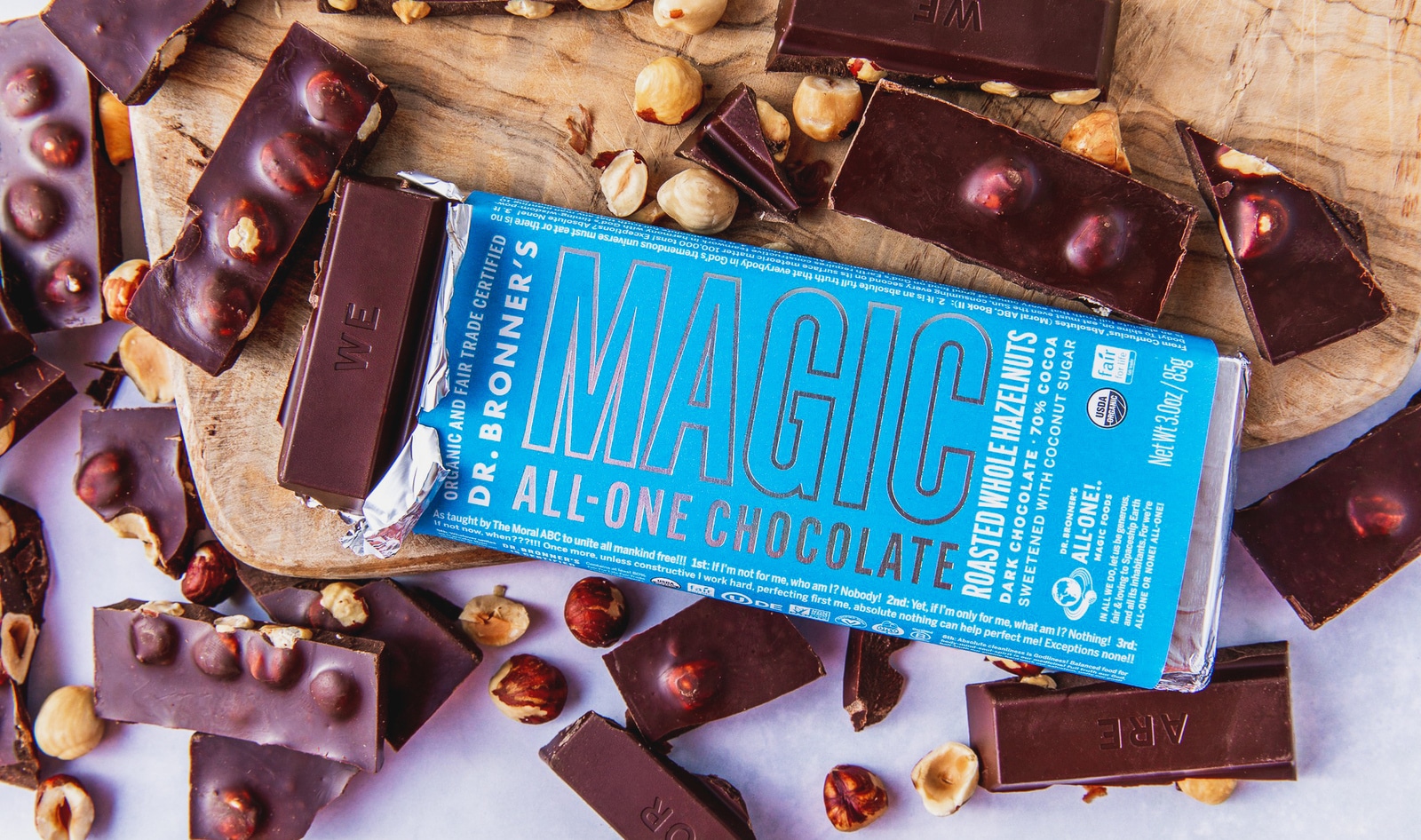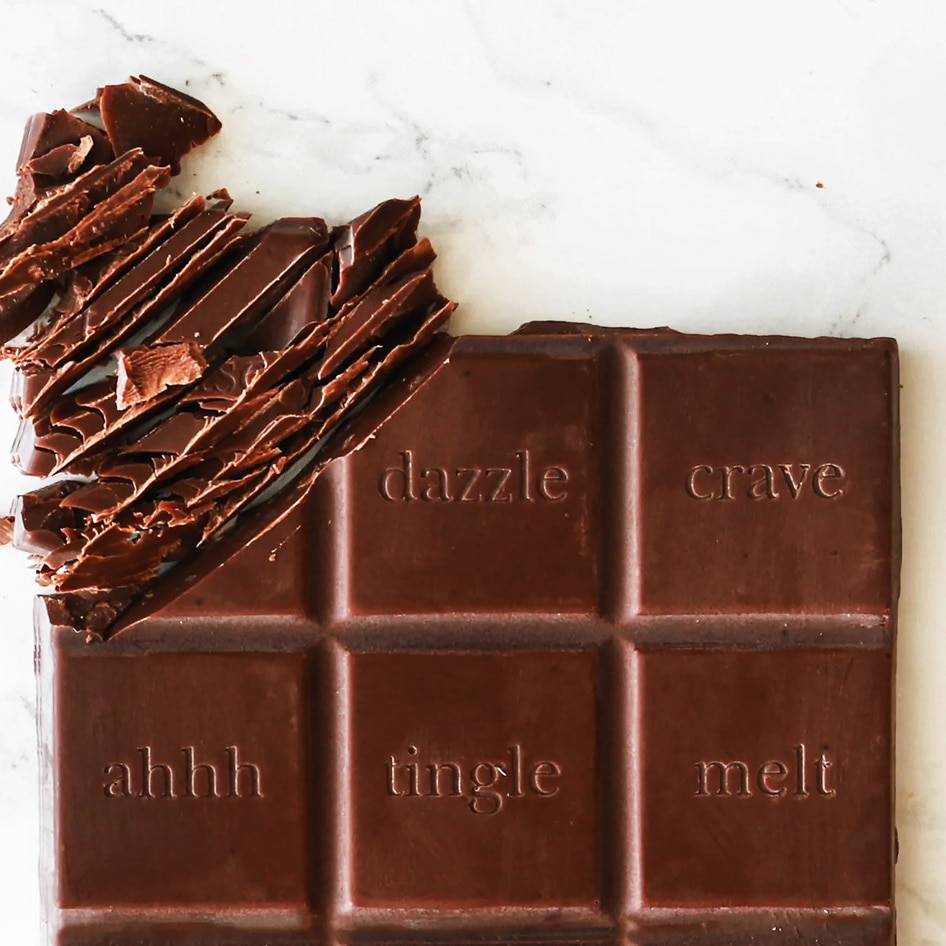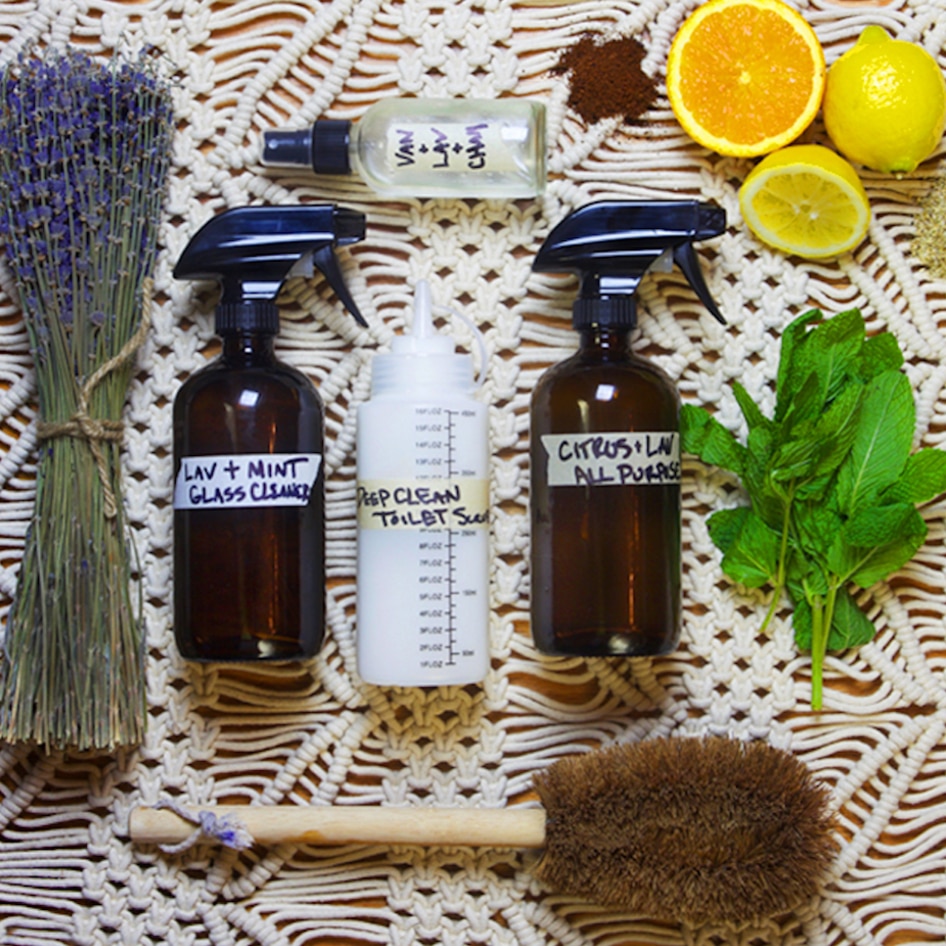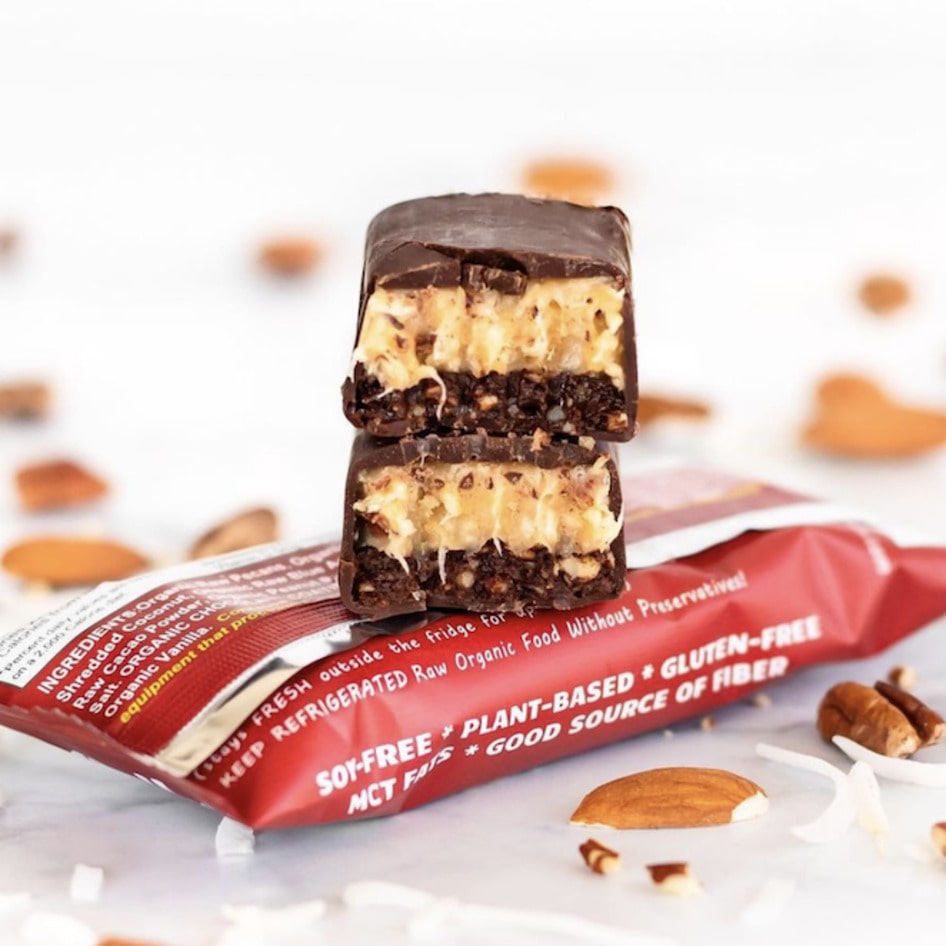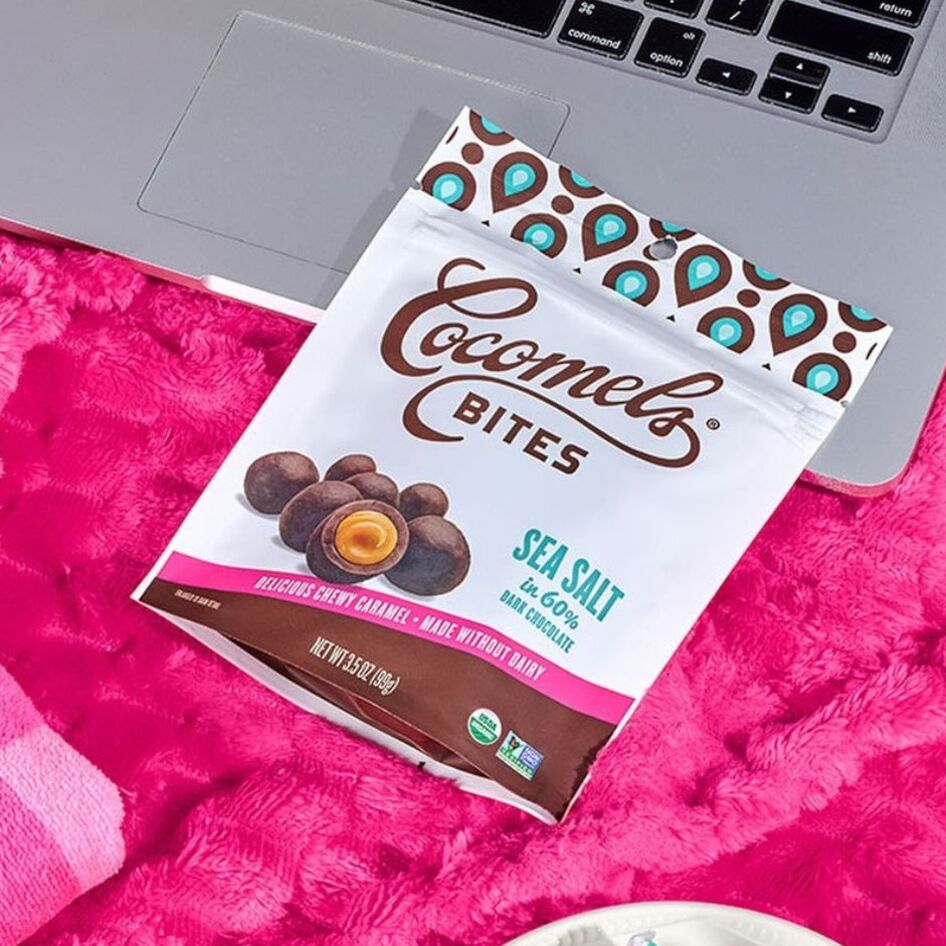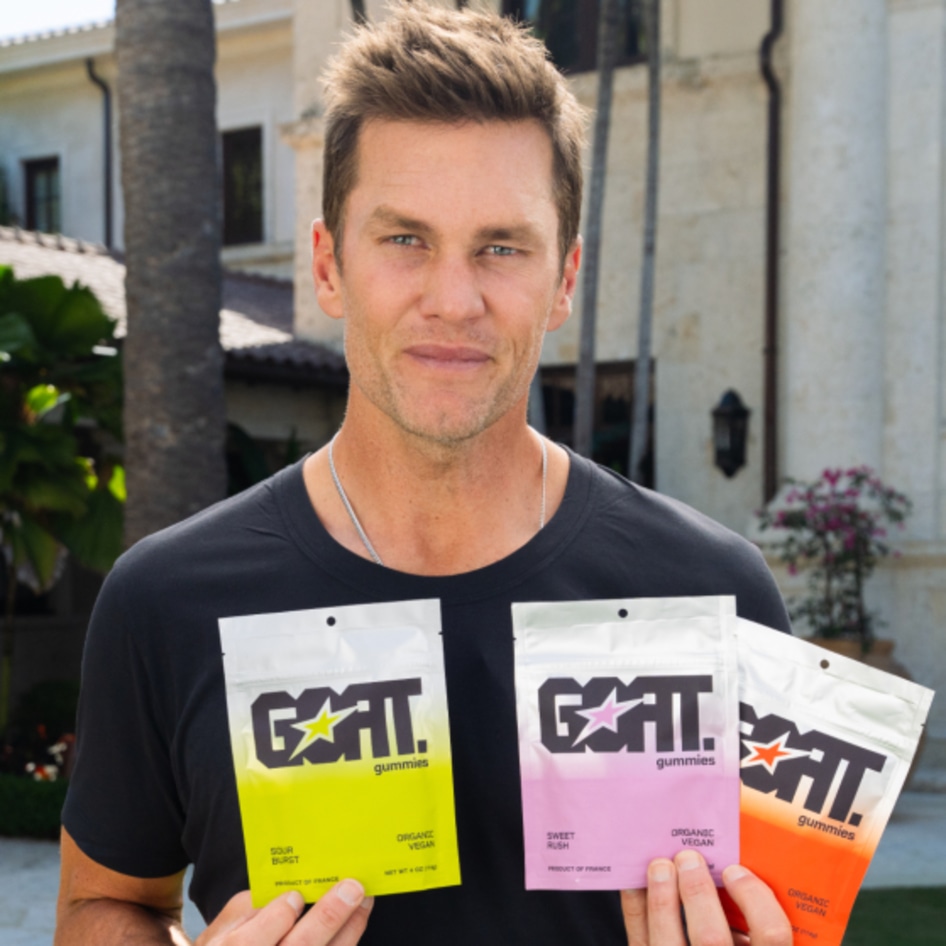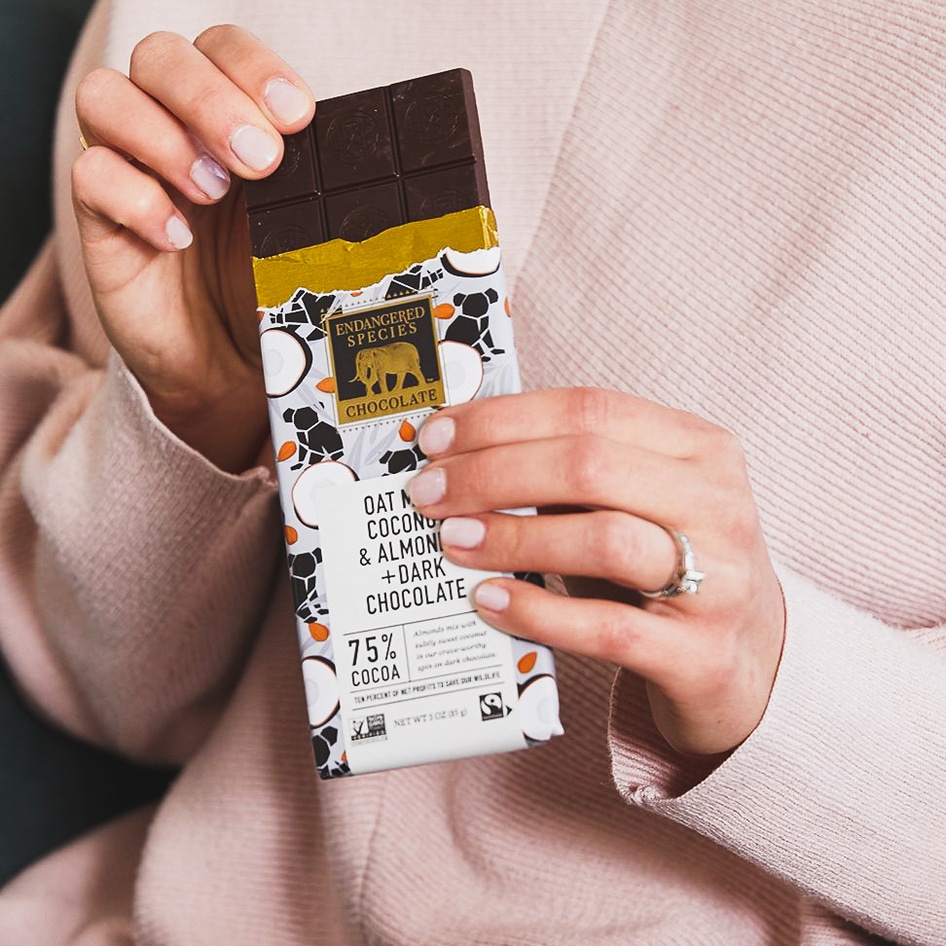If the name Dr. Bronner’s doesn’t ring a bell, the label certainly will. The brand’s iconic soap bottle label is a puzzle of extremely fine print squished so close together you need reading glasses to decipher it. Despite the dizzying label, this soap flies off the shelves, favored by customers looking for clean ingredients put to use by conscious companies. Since its inception as a brand in 1948, Dr. Bronner’s has expanded its original All-in-One Peppermint castile soap to include a number of different body care products, some one-off health food products, and jars of ethically sourced coconut oil, but in May 2021, it made a whiplash-worthy chocolate announcement. The vegan chocolate bars are a part of the Dr. Bronner’s market—and yes, they still have their similar iconic label.
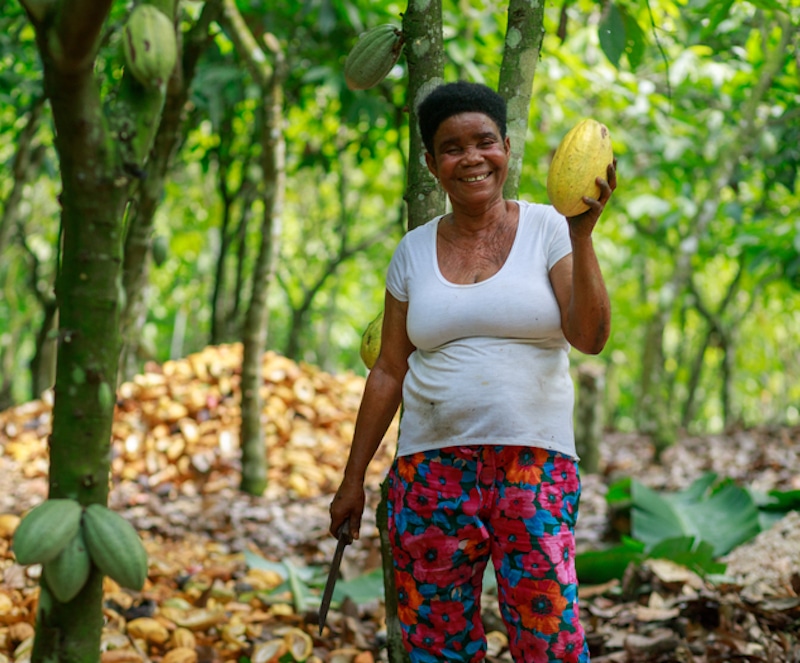
Dr. Bronner’s
Doing business differently
Take the time to read any one of Dr. Bronner’s labels—whether that’s on a soap bottle or a vegan chocolate bar—and you’ll realize Dr. Bronner has a lot to say. For example, the 18-in-1 Hemp Almond pure castile soap says, “End Factory Farming! Stand Up for Animals! Advance a Sustainable & Regenerative Future!” and continues on with facts about the detrimental effects of animal agriculture. The intent seems not only to sell a product but to mass educate consumers about various issues they have a voice in.
Dr. Bronner’s is a California-certified B-Corporation, meaning the business abides by certain legally defined regulations to empower social good. In addition to its activist-leaning labels, the company sources USDA organic and fair-trade ingredients whenever possible and also practices equitable compensation within itself. There is a company-wide pay cap in that no executive’s pay can exceed five times the amount of the lowest-paid employee.
The brand is essentially out to do business better in market areas that have been tainted with questionable ingredient sourcing and greed-driven profit margins. Mike Bronner—president of the company—confirmed, “Like all our products, we are [now] making chocolate to uphold our All-One Mission wherein we seek to make the best possible product for people and the planet and use our means of production to help create a more just and equitable world.”
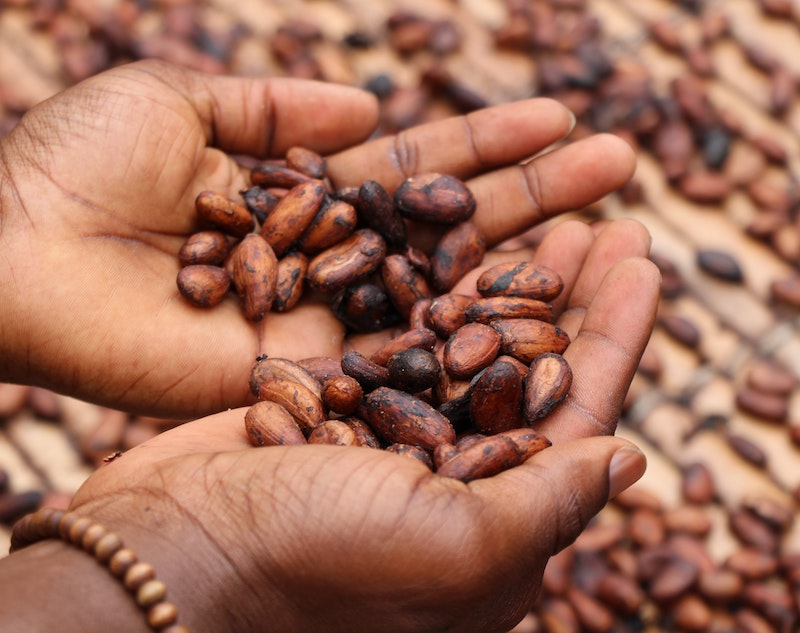
What’s wrong with chocolate?
Gero Leson, Vice President of Special Operations at Dr. Bronner’s, explained this very large problem rather succinctly. “The true cost of chocolate production has been externalized and paid by cocoa-producing communities in the service of profit for a few at the expense of many—leading to widespread ecological destruction, climate instability, poverty, worker exploitation, child labor, and even slavery,” Leson says.
The reality of chocolate production is more bitter than 100-percent cacao, but Dr. Bronner’s is attempting to make the bean-to-bar transformation sweeter for everyone involved in the process. CEO David Bronner echoes Leson, explaining that in the cocoa industry “human rights abuses, environmentally harmful and chemical-intensive cultivation practices, and labor exploitation run rampant.” He continues that Dr. Bronner’s new vegan chocolate bars demonstrate that this often corrupt industry can uphold the highest standards for labor rights, agricultural production, and environmental protection. “To us this is a meaningful achievement that we hope other business leaders will see as an example for how companies can usher into being a new standard for excellence in chocolate and ethical production,” Bronner says.
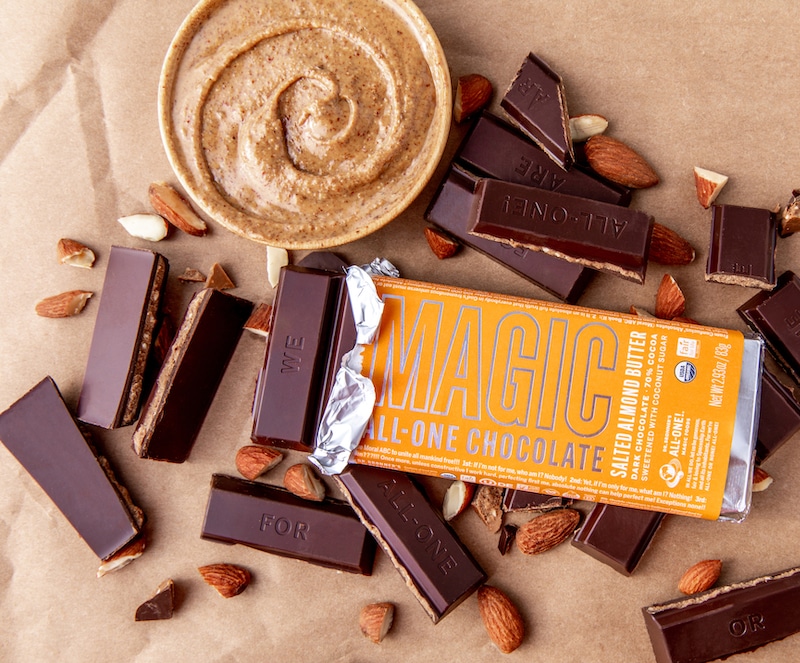
Dr. Bronner’s
How to make ethical vegan chocolate
For an established company like Dr. Bronner’s, it’s all about exploring connections. Dr. Bronner’s works with over 800 farmers in Ghana to supply them with their ethically sourced soap ingredients, and they discovered that these farms also grow cocoa. They knew these farms upheld fair-trade and regenerative organic practices, so they simply extended their partnerships to include cocoa.
In addition to fair labor requirements and safe ingredients, the company places a large emphasis on regenerative organic agriculture. “The Regenerative Organic Agriculture model upholds three pillars: soil health, animal welfare, and social fairness. Together these criteria foster more resilient local economies and farming communities, while sequestering carbon in soil thereby helping to mitigate the effects of climate change,” Bronner broke it down for us.
Regenerative agriculture has come into question in some vegan circles, as some regenerative farmers employ the use of animals to fertilize soil and later send them to slaughter. There are vegan methods of regenerative farming, and Bronner emphasized that all the ingredients for the chocolate are vegan (just like the soaps) and “sourcing these plant-based ingredients helps us ensure a cruelty-free supply chain.”
This model of doing better—both for people, the planet, and the animals—is what makes these vegan chocolate bars “magic,” according to the Dr. Bronner’s team.
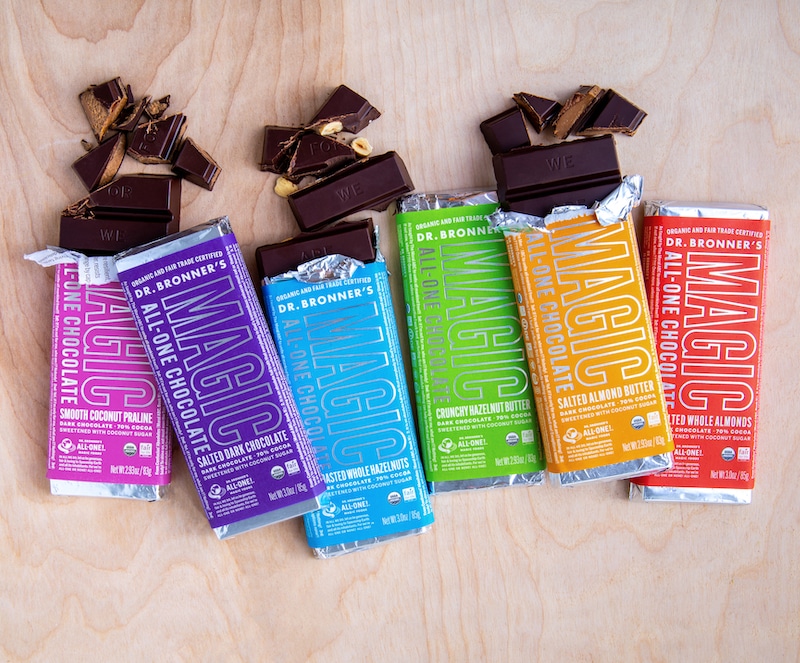
Dr. Bronner’s
Which flavor?
Despite the fact that they lept into an entirely new category, Dr. Bronner’s was not content with launching just one flavor to test the market—it launched six. The enticing, coconut sugar-sweetened flavors run the gamut of tastes and textures ranging from salty, sweet, crunchy, and smooth. Think nut-studded Roasted Whole Hazelnuts, silky Salted Almond Butter, and Smooth Coconut Praline. The latter is Christina Volgyesi’s—Dr. Bronner’s Vice President of Marketing—favorite; she claims “there’s nothing like it on the market!” Volgyesi also hinted that more flavors are in the works. We’re crossing our fingers for a mint-filled or a chocolate-enrobed coffee bean flavor in the future!
All six of Dr. Bronner’s vegan chocolate bars are available in natural product retailers nationwide as well as online.
For more vegan sweets, read:
35 Essential Vegan Candy Bars You Can Buy Year-Round
The VegNews Guide to Vegan Candy
8 Vegan Cakes That Can Be on Your Doorstep This Week
JUMP TO ... Latest News | Recipes | Guides | Health | Subscribe

